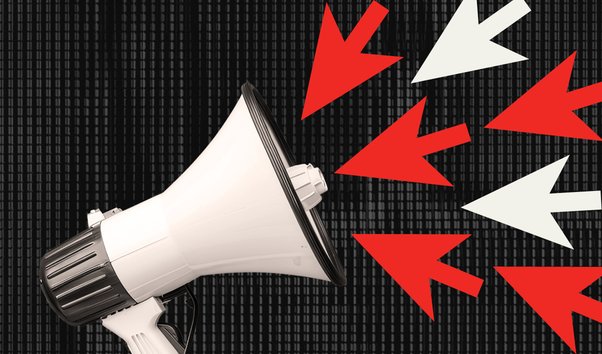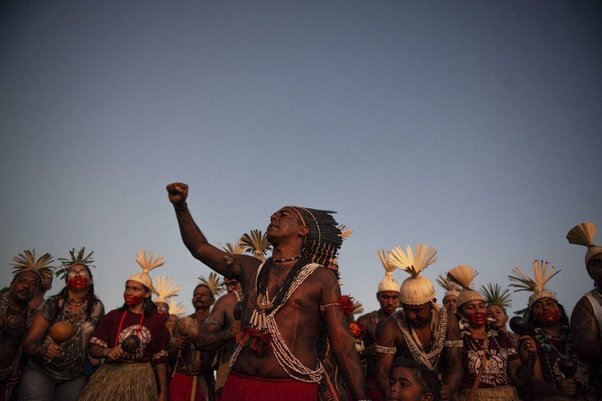As the climate crisis intensifies, there is a pressing need to focus on the activists, communities and land and environmental defenders who risk everything to protect our planet. Despite their crucial role, they are often sidelined in climate negotiations and face violence and criminalisation. A new initiative aims to bring their voices to the heart of climate discussions.
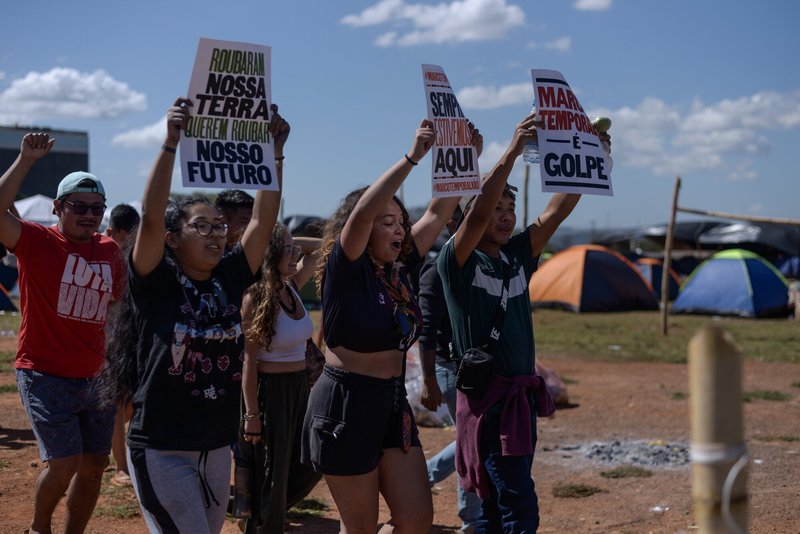
Land and environmental defenders are on the frontline of the climate crisis. These individuals risk their lives to stand against the harmful impacts of deforestation, mining and other threats to their environment, homes and communities.
They are essential in speaking up for the health of our ecosystems and the rights of communities affected by climate change and the search for sustainable solutions.
However, instead of being at the centre of climate discussions, defenders are increasingly silenced: shut-out of key decision-making spaces arrested, attacked and even killed.
According to the latest Global Witness annual Land and Environmental Defenders report, Missing Voices, at least 196 defenders were killed worldwide in 2023 alone. And this is only the tip of the iceberg.
Defenders today endure a troubling surge in violence, harassment, stigmatisation and new legislation that criminalises and restricts their participation, particularly within the context of the climate emergency and energy transition.
With Latin America hosting critical summits in the coming years, such as COP16 in Cali, Colombia, and COP30 in Belém, Brazil, it's crucial to spotlight these defenders – particularly as Colombia and Brazil rank highest in the world for the number of defender killings.
More than ever, this is the moment for international institutions and governments to adopt climate and environmental policies that recognise and protect the role of defenders in tackling the climate emergency.
World leaders must make commitments that improve defenders’ ability to achieve their demands, participate in decision-making at all levels, and receive protection from violence.
Global action for systemic change
The climate emergency is escalating quickly, as evidenced by the record-breaking environmental disasters of 2024.
From severe wildfires in the Amazon and Canada to devastating floods in Libya and Southern Brazil, the impacts on people and planet are dire. Extreme heatwaves in Europe and cyclones in Asia have compounded the global crisis, highlighting the urgent need for effective climate action.
As world governments prepare to unveil new climate action commitments, following a stark assessment from the first Global Stocktake of the Paris Agreement (GST), it is clear that the progress made so far has been insufficient.
Current climate policies still have the world on track to warm by 2.7°C, which the new forthcoming climate targets would only clip to 2.5°C.
With just a few years remaining until the 2030 milestone, when emissions must be cut in half and the UN Sustainable Development Goals achieved, the gap between current actions and required targets remains significant.
Failure to meet these targets threatens not only the Paris Agreement’s goal of limiting global heating to below 1.5°C, but also our fundamental human rights obligations. To slack on meaningful climate action is to ignore the very real suffering of people living in climate-vulnerable communities.
To bridge the gap between climate action and human rights, transformative systemic changes are essential – changes that fully recognise and integrate defenders into climate and environmental decision-making processes.
In this critical moment for our planet, it is clear that achieving climate justice and a just energy transition requires placing civil society and defenders at the core of climate debates.
Introducing Leaders Network for Environmental Activists and Defenders (LEAD)
In recent years, there have been important positive steps internationally to reverse repressive trends and increase the recognition and participation of defenders.
Regional instruments like the Aarhus Convention, the Escazú Agreement and the UN Human Rights Council resolution 40/11 and General Assembly resolution 78/216 have been adopted to protect and engage defenders have been taken in multilateral forums.
However, many of these efforts remain disconnected from one another, and much work is still required to promote a human rights-centred approach in spaces dedicated to global environmental policy.
The lack of coherent implementation of standards, compounded by repressive measures at the national level, has exacerbated the threats faced by defenders, communities and groups acting on their behalf.
Amidst this urgent need for change, a new initiative is emerging. The Leaders Network for Environmental Activists and Defenders (LEAD) is a groundbreaking initiative aimed at placing defenders at the heart of climate decisions while enshrining their right to safety and participation on the international stage.
Born from the collaboration between land and environmental defenders, civil society organisations, grassroots movements, coalitions, UN agencies and more, LEAD is a platform created by and for defenders.
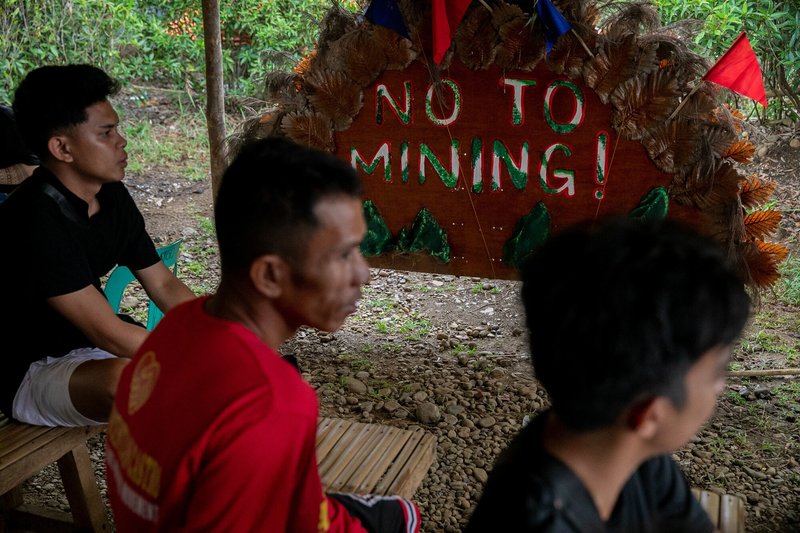
LEAD’s mission is to drive meaningful change by fostering dialogue at the multilateral level, with the following shared goals:
- Different stakeholders, including governments, land and environmental defenders, international institutions, the private sector and civil society actors breaking down silos and coming together to coordinate transformative solutions to recognise and protect environmental defenders and communities.
- Land and environmental defenders and communities actively participating in crucial decisions that directly affect their livelihoods.
- Decision-making on the transition to renewable energy being done in a just way that puts people and communities first, without repeating the fossil fuel industry’s mistakes.
- Land and environmental defenders making decisions regarding loss and damages funding.
- The Brazilian government innovating: putting communities, land and environmental defenders and activists on the agenda for COP30 in 2025 and meaningfully including them in all decision-making processes.
By connecting key stakeholders, the LEAD initiative will amplify the voices of those affected by environmental destruction and ensure that decisions made in negotiation rooms reflect the needs and aspirations of communities worldwide.
Global announcement at New York Climate Week
At New York Climate Week (NYCW) 2024, government leaders, activists, civil society organisations and others announced LEAD and discussed advancing multi-stakeholder action for the protection of land and environmental defenders.
This is the start of a crucial conversation about how we can all work together to ensure that the people defending our planet have a seat at the negotiating table.
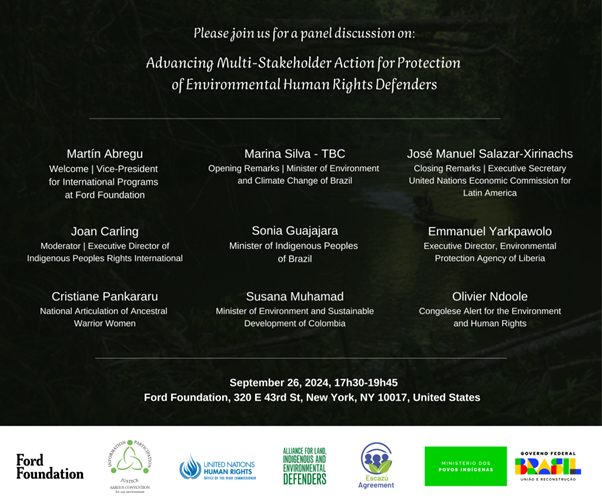
The challenges defenders face are growing, but with initiatives like LEAD, we can begin to reshape the future – one where their voices are heard, their rights protected and their role in the fight against climate change fully recognised.
If you are interested in knowing more about the event, please contact us at [email protected].
How can you support LEAD?
Global Witness, together with a group of civil society organisations, coalitions, grassroots movements and defenders are promoting an open letter to get civil society support for the initiative.
The signatories of this letter call on leaders from governments and international institutions to work together with land and environmental defenders, including women defenders, Indigenous Peoples, local communities and civil society groups, to address the threats faced by defenders.
We urge leaders to commit to defenders’ protection and meaningful inclusion in decision-making on climate and environmental processes at the global, regional and national levels.
Strengthening the coordination of these efforts would highly benefit the much-needed promotion of a human rights-centred approach that recognises and enables a safe environment for defenders.
To learn more and lend your support to the creation of LEAD, please access the support letter. Your involvement is crucial in driving meaningful change and ensuring that those protecting our planet are recognised, protected, and included in global environmental governance.

